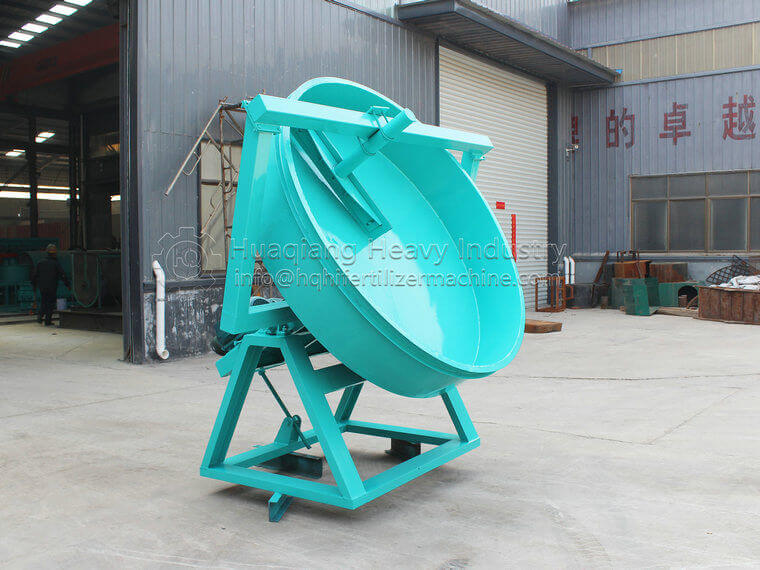The maintenance of the disc granulator after granulation mainly includes the following aspects:
1. Cleaning work:
After the disc granulator stops, first turn off the power, then open the machine door and take out the remaining raw materials and particles.
Use appropriate tools (such as soft brushes, compressed air, etc.) to remove residues inside the granulator, especially the sieve and feeding port, to prevent blockage and corrosion.
Cleaning the surface of the machine, removing dust and dirt, and keeping the equipment clean can help ensure normal start-up and operation for the next use.
2. Inspection and fastening:
Check all fasteners of the machine to ensure there is no looseness. If necessary, use a torque wrench to tighten again.
Check the transmission parts, including gears, chains, and belts, to ensure they are not worn or broken, and lubricate them if necessary.
3. Lubrication and maintenance:
Lubricate all parts that require lubrication, such as bearings, gears, etc., using recommended lubricating oil or grease.
Check if the lubrication system is working properly and ensure that the lubricating oil flow and pressure meet the requirements.
4. Electrical system inspection:
Inspect the electrical control cabinet to ensure that all wires are securely connected and free from erosion or corrosion.
Check electrical components such as contactors, relays, sensors, etc. to ensure they are working properly and not damaged.
5. Inspection of worn parts:
Regularly inspect vulnerable parts such as screens, blades, hammers, etc., and determine whether replacement is necessary based on the degree of wear.
For severely worn components, they should be replaced in a timely manner to avoid affecting the normal operation and production efficiency of the equipment.
6. Storage and Protection:
After maintenance is completed, store the equipment in a dry and ventilated environment to avoid moisture and corrosion.
For equipment stored outdoors, it should be covered with rainproof cloth to prevent rainwater from entering.
7. Record and track:
Record the date, content, and replaced parts of each maintenance, and establish a maintenance file.
Based on maintenance records, develop subsequent maintenance plans and preventive maintenance measures.
Through the above maintenance steps, it can be ensured that the disc granulator receives appropriate maintenance after granulation is completed, extending the service life of the equipment and ensuring production efficiency and product quality.




.jpg)
.jpg)

